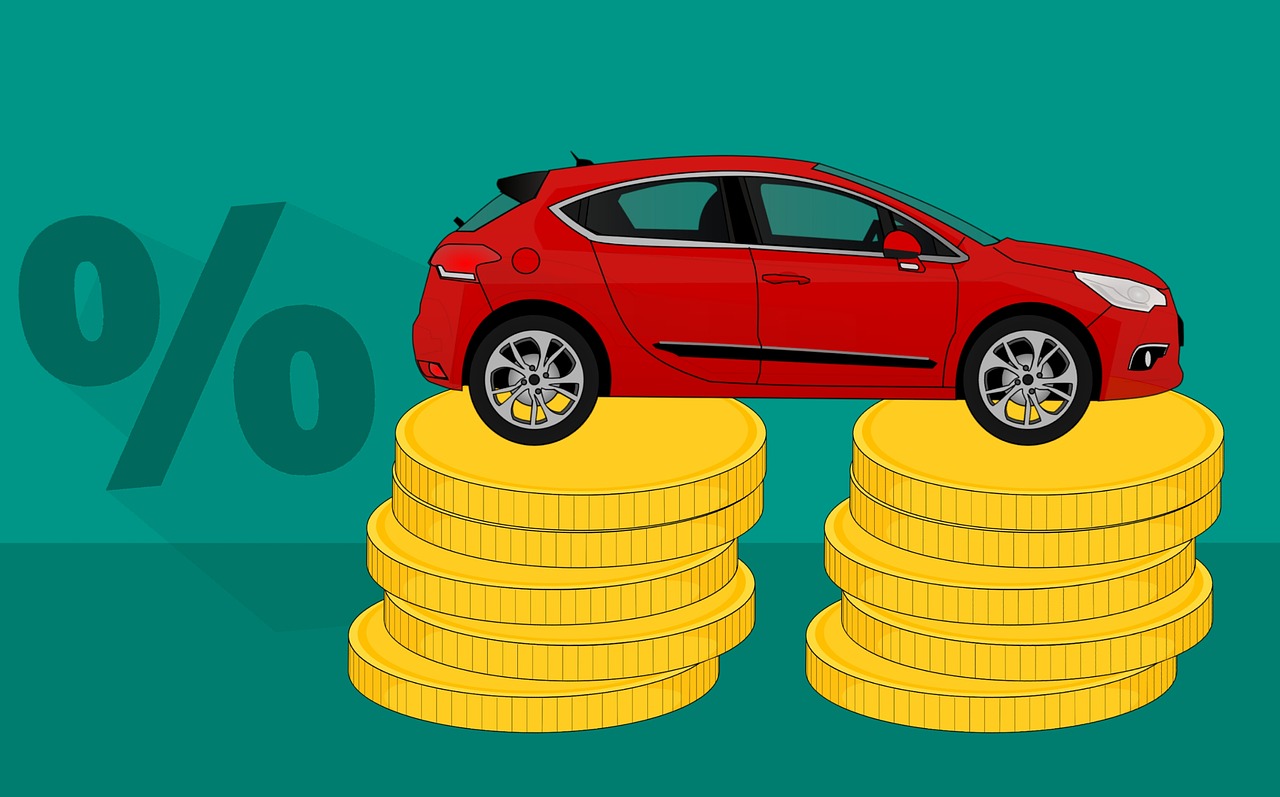When it comes to buying a car, many people think that the best way to get a good deal is to go ahead and offer the asking price. It isn’t always the case. If you want to get the best deal possible on a car, you’ll need to haggle. Maybe you’ve never bought a vehicle before, and you’re not familiar with the process. And you have no idea how important it is to haggle when negotiating to buy a car.
In this blog post, we’ll talk about why it’s essential to haggle when negotiating to buy a car and some tips on how to do it effectively.
What Exactly Does Haggle Mean?
Haggling is the process of negotiating a price for something – in this case, a car. It’s common in many cultures and countries around the world, and it’s been used for centuries. When you haggle, you’re essentially trying to get the seller to lower the price of the item you’re interested in so that it’s more affordable for you.
Why Is It Important to Haggle When Negotiating to Buy a Car?

Haggling is the process of negotiating a price for something – in this case, a car. It’s common in many cultures and countries around the world, and it’s been used for centuries. When you haggle, you’re essentially trying to get the seller to lower the price of the item you’re interested in so that it’s more affordable for you.
Haggling is crucial because it can save you a lot of money. If you’re not familiar with the process, it can be daunting, but it’s quite easy once you get the hang of it. And, as we said before, it can save you a lot of money. Here are some more reasons why it is essential to haggle when negotiating to buy a car:
➜Get the Price You Want
As mentioned, haggling can help you get the price you want on a car. If you’re not comfortable with the idea of haggling, you might be tempted just to pay the asking price – but this is usually not the best idea. You can get the seller to lower the price to more in line with what you’re willing to pay by haggling.
If you’re not familiar with the process, you might not realize that there’s wiggle room for car prices. But there is – and by haggling, you can ensure that you’re not paying more than you have to.
➜Get a Better Deal on Extras and Add-Ons
In addition to negotiating the price of the car itself, haggling can also help you get a better deal on extras and add-ons. These are things like extended warranties, service plans, and more. These things are often negotiable – so if you’re not comfortable with the price, don’t be afraid to haggle.
You might not realize it, but you can often get a better deal on these things by haggling – so it’s worth doing if you’re looking to save money.
➜Get the Car You Want
Haggling isn’t just about getting a lower price – it’s also about getting the car you want. If you’re not comfortable with haggling, you might be tempted to buy the first car you see. But if you’re willing to haggle, you can often get the seller to throw in extras or add-ons.
For example, let’s say you’re looking at two similar cars. One has all the features you want, but it’s a little out of your price range. The other has some of the features you want, but it’s within your budget. If you’re willing to haggle, you might be able to get the seller to add the missing features to the second car – or at least lower the price so that it’s more in line with what you’re willing to pay.
Effective Ways to Haggle When Negotiating to Buy a Car

Now that we’ve talked about why it’s crucial to haggle when negotiating to buy a car, let’s talk about some effective ways. Here are a few tips:
✔Do Your Research Ahead of Time
Prior to negotiating, it’s important to do your research. Many well-known internet resources, such as Kelly Blue Book, might provide you with the manufacturer’s retail value price at which the car should be purchased. It can also indicate how much you might save by buying through a dealership rather than a private seller.
It includes things like knowing the value of the car you’re interested in and familiarizing yourself with the negotiating process. The more prepared you are, the better equipped you’ll be to haggle effectively.
✔Establish Your Budget
Finding a suitable car to fit your lifestyle, budget, and demands is the first step in any car purchase or lease. If you want to pay with cash, the sum of money you have on hand will determine how much negotiation room you get. If you take a car loan, you may have a greater fund, a wider selection of car-buying possibilities, and more negotiating leverage.
Even if you intend to use a car loan, you may want (or need) to pay a deposit to lessen your total loan balance or closing expenses. Carefully consider how much money you have ready to spend.
✔Know Your Credit Score
Your credit score is one of the most critical factors lenders consider when considering you for a car loan. The higher your credit score, the lower your interest rate will be. It means you can qualify for a larger loan, which gives you more negotiating power regarding price.
If you don’t know your credit score, now is to find out. Every year, you can have a free credit report from the three major credit bureaus.
✔Start by Stating a Lower Amount
When you’re ready to start negotiating, it’s essential to start by stating a lower amount than what you’re willing to pay. It gives you some room to negotiate up from your initial offer. Then you can increase your offer gradually until you reach a price that you’re both happy with.
✔Keep the Transaction Emotion-Free
Once you’re ready to begin haggling over the cost of a car, keep in mind that the aim is to obtain the greatest bargain possible. It can be difficult to do if you get emotionally attached to the car you’re interested in.
It’s important to remember that you’re not buying a car – you’re buying a means of transportation. Savvy salespeople often exploit the emotional attachment that many people feel toward cars. They know how to play on your emotions to get you to pay more than you should.
If you can keep the transaction emotion-free, you’ll be better positioned to negotiate a good deal.
✔Don’t Focus on Monthly Payments
Some common mistakes when negotiating the price of a car include focusing on the monthly payment rather than the total purchase price. It is a common tactic used by salespeople to make cars seem more affordable than they really are.
For example, let’s say you’re looking at a car that costs $20,000. The salesman might say, “We can get you into this car for just $400 a month.”
While $400 a month may seem like a good deal, it’s important to remember that you’re not just paying for the car but also paying interest on the loan. In this example, throughout a five-year loan, you would pay almost $13,000 in interest. That brings the total cost of the car to $33,000 – more than double the original price.
So, when negotiating, be sure to focus on the total purchase price, not just the monthly payment.
✔Separately Negotiate Each Part of the Transaction
When you’re negotiating the price of a car, it’s important to remember that there are three separate parts to the transaction:
- Price of the car
- Value of your trade-in (if you have one)
- The interest rate on your loan (if you’re financing)
Each of these items should be negotiated separately. The price of the car is the most critical factor, but don’t neglect the other two.
Dealers might prefer to focus on the entire transaction. It enables dealerships to offer you a good price in one area while profiting in another. Keeping each part of the transaction separate can ensure that you’re getting the best possible deal on each item.
✔Check For Rival Dealers Online
In today’s world, it’s easy to check for rival dealers online. It is a great way to get an idea of what other dealerships offer. You’ll be better positioned to negotiate a lower price if you know what other dealers are selling the same car for.
✔Avoid Costly Extras
When negotiating the price of a car, be sure to avoid costly extras. These can include extended warranties, gap insurance, and paint protection. These items are often overpriced and not worth the money. In most cases, you’re better off avoiding them altogether.
✔Read the Terms of Service and Other Relevant Documents
You’re probably ready to leave the showroom and drive your new (or new-to-you) vehicle home. However, there is still more work that can be done. Regardless of how eager you are to go home, you must read and comprehend your signing documents.
These documents will likely include the following:
- Terms of service
- Sales contract
- Warranty agreement
Each of these documents is important and should be read carefully before signing anything. By taking the time to do this, you can avoid costly mistakes down the road.
✔Be Prepared to Walk Away
If you’re not getting the deal you want, be prepared to walk away. There’s nothing wrong with leaving the dealership and shopping around for a better deal. Many salespeople expect that you’ll do just that.
It is one of the essential pieces of advice when it comes to haggling over the price of a car. If you’re not happy with the offer on the table, don’t be afraid to walk away. The salesperson may come back with a better offer, or you may find a better deal elsewhere. Either way, you’ll be glad you held out for what you wanted.
Negotiating for New Vs. Used Cars
Even if you’re buying a new or used car, one rule works for both cases: successfully haggling down the purchase price may save you a great deal of money. The main distinction will be the amount of deal you may get off the retail value:
▶Used Cars
With used vehicles, you usually have greater leeway. Based on how much info you currently have about the car’s condition and value, you may start by demanding a greater price reduction and then haggle from there.
▶New Cars
For new cars, the dealership’s profit margin is usually smaller. As a result, you may not get as much reduction from the sticker price. However, there are other ways to save when buying a new car, such as negotiating for freebies or extra features.
In any case, it’s critical to search around and be willing to walk away if you don’t find the right offer. The dealer may attempt to entice you with the allure of the complete package, but the vehicle’s price is eventually what counts to the bottom line.
Frequently Asked Questions
Q: How Much Can You Lower the Price of a Used Vehicle With a Dealership?
You can lower the price of a used vehicle at a dealership by anywhere from a few hundred dollars to a few thousand dollars. The amount you can lower the price depends on several factors, including the age, make, and model of the vehicle, how many miles it has been driven, and what condition it is in. Generally, the more worn-out or damaged the vehicle is, the more money you will be able to save on the purchase price.
If you’re looking to get the best deal on a used car, it’s essential to shop around at several different dealerships and compare prices. Be sure to also haggle with the salesperson and try to negotiate a better deal.
Q: Is it better to buy a car at the end of the month?
The end of the month is typically when dealerships are looking to clear out their inventory and make room for new cars. As a result, they may be more willing to negotiate on price and offer better deals. However, this is not always the case, so it’s important to research and compare prices before making a purchase.
Q: During the haggling process, which tactics were most successful?
The most successful tactics generally involve some combination of being friendly, persistent, and creative. Being friendly and persistent typically works well because the seller can see that you are interested in their product and willing to put in the time to negotiate a fair price. Being creative can also be helpful because it shows that you are willing to think outside the box and come up with solutions that work for both parties.
Q: How can I practice haggling before going to a dealership?
There are a few ways you can practice haggling before going to a dealership. One way is to try bargaining for other items, such as at a garage sale or flea market. You can also look online for tips and advice from experts. Additionally, many books and articles can teach you the basics of haggling. Finally, try to role-play with a friend or family member so that you can get some practice in before going to a dealership.
Final Thoughts
Haggling is an important skill to have when negotiating the purchase of a car. Whether you’re buying a new or used car, haggling can help you save a significant amount of money. Be sure to practice your haggling skills before going to a dealership to get the best deal possible. Thanks for reading!

